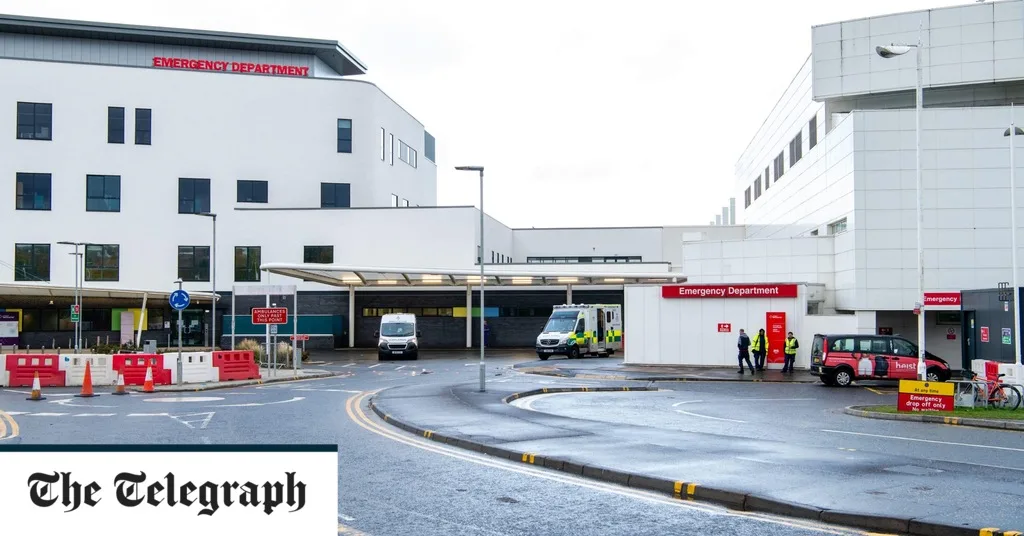
Scotland’s crisis-hit NHS is to begin a “programme of reparations” to Jamaica and Africa in a bid to “make amends” for a hospital’s slavery links dating from the eighteenth century.
An NHS Lothian report found that, in today’s money, the Royal Infirmary of Edinburgh had profited by almost £40 million from slavery, including through ownership of a small Caribbean slave plantation, left to it in a surgeon’s will in 1750.
It claimed that Scotland’s historic healthcare system had been “part funded by slavery” and that the hospital had been “built on and sustained by the horrific enslavement and cruel exploitation of enslaved peoples”.
While the reparations are not expected to involve direct repayment of the £39.1 million, the NHS Lothian board is expected to approve a series of measures on Wednesday designed to redress its part in a “crime against humanity”.
It is proposed that these will include NHS Lothian and its official charity making a formal apology to people of African descent, commissioning artwork dedicated to victims of slavery and signing an agreement aimed at improving health in modern-day Jamaica.
An advisory group set up by NHS Lothian claimed that the measures would “help to eliminate systemic discrimination and racism in Scotland” and “make amends for past wrongs”.
However, the timing of the announcement and the priority given to the work was questioned, with the Scottish NHS facing an unprecedented crisis that is set to deepen in coming months.
It is expected that the work would be funded from “existing departmental budgets and staffing”, meaning it will swallow up resources that could have been used for healthcare.
Sue Webber, the Scottish Tory MSP, said “eyebrows are bound to be raised” by the report, which was placed higher on the agenda for the board meeting than discussions on preparing for winter and NHS Lothian’s poor recent performance.
She added: “With Scotland’s NHS stretched beyond breaking point under the SNP, the public will rightly question why NHS Lothian are expending scarce resources on this matter – especially when they see it comes above ‘winter planning’ on the agenda.”
‘Reaffirm human worth’
Across Scotland, more than a quarter of cancer patients are waiting for longer than the two-month target to begin treatment, from an initial referral.
At the modern-day Royal Infirmary, which has moved twice since it was given the slavery plantation 273 years ago, 47.7 per cent of patients, 1,174 people, waited longer than a target of four hours in its A&E in the week ending Sept 10.
Of these, 324 waited longer than eight hours and 121 were stuck for more than 12 hours.
Research backed by the health board, set up in its current form in 2001, found that the Royal Infirmary had been left the Red Hill Penn estate, in south-eastern Jamaica, in 1750 in the will of a surgeon, Archibald Kerr.
The bequest included 39 slaves, and the report said that over the next 143 years, “generations of enslaved people” would provide “a considerable amount of wealth for the infirmary” in rental income.
Research has also identified donations the hospital received from individuals who profited from slavery.
The report claimed that implementing the recommendations would lead to better care and treatment, in part because they would “reaffirm human worth” of the “successive generations of people who are the victims of slavery”.
However, the claim was dismissed by an NHS Scotland insider, who said they would do nothing to address severe challenges the healthcare system is currently facing.
“It seems extraordinary that this is being treated as a major priority at a time that the basic healthcare needs of the public are simply not being met,” the staff member said.
“A huge amount of time and money has clearly gone into this already and every aspect of the recommendations will mean even more being wasted on things other than looking after people.
“These resources would be far better used trying to work out how to properly serve our patients, regardless of anyone’s race or background.”
‘This work is vital’
The research work was funded by NHS Lothian’s charity. Calum Campbell, the chief executive of NHS Lothian, said that “tackling racial inequality and racism” was “a core part of what NHS Lothian does”.
He added: “This helps us contribute to a health and care system where everyone in Lothian lives longer, healthier lives, with better outcomes from the care and treatment we provide and where everyone who works with and for us has better experiences.
“This work is vital to delivering this ambition.”


